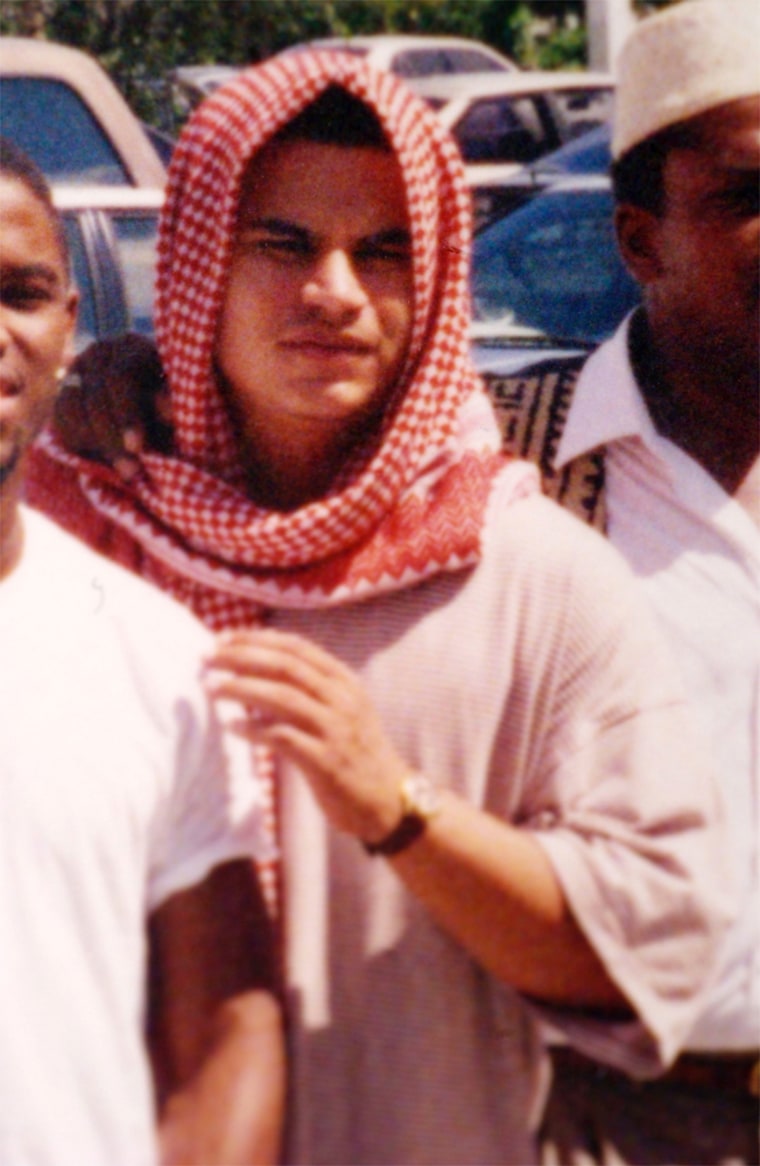The Bush administration asked the Supreme Court on Friday to review a judge’s ruling ordering the United States to release a U.S.-born suspected terrorist.
The administration wants the high court to take on the case of Jose Padilla, a former gang member and convert to Islam who was arrested in Chicago in May 2002 in connection with an alleged plot to detonate a radioactive “dirty bomb.”
The Justice Department filed a late request with a federal appeals court in New York, asking that a ruling ordering Padilla’s release be put on hold. The government then filed an immediate appeal at the Supreme Court on Friday night.
“The government will suffer irreparable harm if the mandate” to release Padilla or transfer him to civilian court is carried out, Deputy Solicitor General Paul D. Clement told the appeals court judges Friday afternoon.
Presidential powers debated
“The president, in the exercise of his commander-in-chief power during wartime, has determined that Padilla’s detention as an enemy combatant is necessary to prevent him from aiding al-Qaida in its efforts to attack the United States,” Clement wrote.
President Bush also determined that Padilla held valuable intelligence information that could help prevent future terror attacks, Clement wrote in a filing with the 2nd U.S. Circuit Court of Appeals.
The 2nd Circuit’s Dec. 18 decision gave the government 30 days from the date of its final order to release Padilla. The order is not final, so that clock has not yet begun to run.
If granted, Friday’s request would suspend the release at least until the Supreme Court decided whether to hear the appeal.
The ruling “not only overturns the president’s determination that Padilla’s custody by the military is necessary to protect the nation’s security and prosecute the war, but also eliminates a critical aspect of the president’s commander-in-chief authority," Clement wrote.
That aspect, he said, is “the power to order the military to capture and detain enemy combatants, including United States citizen enemy combatants, that enter the United States determined to conduct hostile and warlike acts.”
Padilla is accused of plotting to detonate a “dirty bomb,” a makeshift device that would use conventional explosives to disperse radioactive materials. The government said he had proposed the bomb plot to Abu Zubaydah, then al-Qaida’s top terrorism coordinator. Zubaydah was arrested in Pakistan in March 2002.
Those accusations, however, are not part of the Supreme Court case. The high court would look only at Padilla’s detention.
The administration wants the Supreme Court to add the Padilla case to its docket for this term, allowing the court to decide by summer whether national security justifies detention of U.S. citizens indefinitely and without charges.
The Supreme Court has already agreed to hear a similar case testing the legal rights of U.S. citizens caught overseas in the war on terrorism, and the Bush administration planned to ask the high court to combine the two cases.
Yaser Esam Hamdi was captured in Afghanistan, while Padilla was arrested on U.S. soil. Lawyers for both men claim that their treatment is unconstitutional. Hearing the cases together would simultaneously address the rights of U.S. citizens captured abroad and at home.
Boundaries of citizens’ rightsThe cases raise basic legal and constitutional questions about the breadth of executive power and the rights of terror suspects to defend themselves in court and represent the most significant civil liberties issue to reach the high court since the Sept. 11, 2001, terrorist attacks.
The 2-to-1 appeals court ruling in the Padilla case held that his detention was not authorized by Congress and that Bush could not designate Padilla as an enemy combatant without that authorization.
The Defense Department could release Padilla or transfer him to civilian authorities who could bring criminal charges, the appeals court said. Or Padilla might be held as a material witness in connection with grand jury proceedings, the court said. A material witness is someone thought to have information about a crime.
“Presidential authority does not exist in a vacuum, and this case involves not whether those responsibilities should be aggressively pursued, but whether the president is obligated, in the circumstances presented here, to share them with Congress,” the ruling added.
Unlike the Padilla case, the government has won its argument in lower courts that Hamdi may be held indefinitely without access to a lawyer or the U.S. court system.
Hamdi, who grew up in Saudi Arabia, was picked up while fighting with Taliban troops in November 2001 and held with other battlefield detainees at the military prison camp at Guantanamo Bay, Cuba.
Authorities later transferred him to a U.S. naval brig in South Carolina after discovering he was born in Louisiana. Padilla is locked up at the same prison.
Both men are classified as enemy combatants, a term the Bush administration contends means they are ineligible for ordinary legal protections. Both men have lawyers who are acting on their behalf, but one has never met his client and the other has not been allowed to see him for a year and a half.
The administration says it is reluctant to allow enemy combatants access to lawyers because that could greatly inhibit efforts to obtain information from them about potential terrorist operations.
The Supreme Court separately has agreed to consider the legal rights of other battlefield prisoners at Guantanamo Bay.
